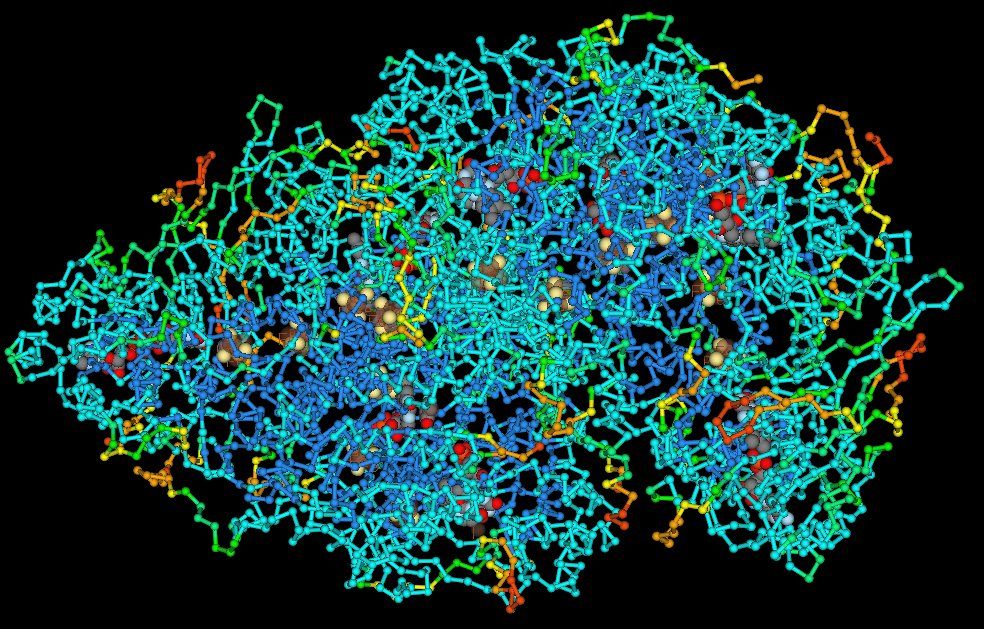Polymers in Healthcare: Improving Clinical Devices and Treatments
Polymers in Healthcare: Improving Clinical Devices and Treatments
Blog Article
Discovering the Varied Applications and Advantages of Polymers in Different Industries
Polymers, with their varied variety of residential or commercial properties and capabilities, have actually become essential in different markets, each enjoying one-of-a-kind gain from their application. Polymers. From improving security and performance in the automobile industry to transforming medical devices in the healthcare industry, polymers play a pivotal role. Their environmentally friendly nature is altering the landscape of sustainability practices. As we delve right into the midsts of polymers in electronic devices, we discover advanced developments, while their architectural honesty transforms the realm of building and infrastructure. The pervasive influence of polymers throughout industries is a testimony to their flexibility and adaptability, forming the future of many markets.
Automotive Field Applications
Polymers play a crucial function in boosting the performance and sturdiness of numerous elements within the vehicle field. One prominent use of polymers in the vehicle industry is in the production of lightweight parts.

Health Care Market Advantages
In different medical care applications, the advantages of utilizing polymers are commonly acknowledged for their varied variety of beneficial residential properties. Polymers play a crucial role in the healthcare industry due to their versatility, biocompatibility, and cost-effectiveness. One of the primary advantages of polymers in healthcare is their ability to be customized to details needs, such as adaptability, longevity, and biodegradability, making them ideal for a variety of clinical applications.
Polymer-based products are extensively used in medical tools, such as catheters, implants, prosthetics, and medicine distribution systems, because of their biocompatibility and capability to mimic all-natural cells. These materials can reduce the danger of allergic reactions or rejections, boosting individual security and outcomes. In addition, polymers are light-weight, making them appropriate for wearable medical tools and making certain individual comfort.
Moreover, polymers enable the growth of innovative therapy methods, such as hydrogels for cells engineering and nanocomposites for targeted medication delivery. Their simplicity of handling and sterilization makes them crucial for maintaining high requirements of hygiene in health care setups. In general, the varied benefits of polymers contribute substantially to advancements in clinical modern technology and client treatment.
Ecological Benefits of Polymers

In addition, polymers can add to power savings because of their lightweight nature. In markets such as transport, light-weight polymer products can help in reducing fuel consumption and greenhouse gas emissions. Furthermore, polymers can allow the advancement of energy-efficient items such as insulation products that enhance power preservation in structures.
Additionally, polymers play a critical duty in reducing water pollution. For instance, using polymer-based filtration systems can effectively remove pollutants and impurities from wastewater, guarding water sources and ecological communities. On the whole, the ecological benefits of polymers make them valuable properties in advertising sustainability and green methods throughout different industries.
Polymers in Electronic Devices and Innovation
Considering the boosting demand for cutting-edge and lasting options in contemporary markets, the assimilation of advanced polymer innovations in the realm of electronic devices and innovation has arised more as an essential technique for driving efficiency and efficiency. Polymers have changed the electronics sector by allowing the production of lighter, a lot more flexible, and sturdy electronic tools. From mobile phones to clinical gadgets, polymers play a crucial duty in enhancing item design and capability.
One significant benefit of polymers in electronics is their protecting homes, which aid safeguard fragile electronic elements from ecological factors and electric disturbance. Additionally, polymers are crucial in the development of versatile displays, wearable innovation, and published electronics, providing countless possibilities for developing smart and interconnected gadgets.
In addition, the use of polymers in electronic packaging has brought about developments in miniaturization and thermal monitoring, improving the overall performance and dependability of digital systems. As modern technology remains to develop, the adaptability and flexibility of polymers will certainly drive additionally technology in the electronic devices industry, shaping the future of technology.
Function of Polymers in Building and Facilities
Polymers use countless benefits in the construction sector due to their adaptability, resilience, and cost-effectiveness. One essential role of polymers in building and construction is their usage in finishings and sealants, giving security against ecological aspects such as moisture, UV radiation, and deterioration.
Additionally, polymers play an important role in sustainable building and construction practices by making it possible for the advancement of energy-efficient frameworks. Protecting materials made from polymers help manage indoor temperature levels, decreasing the need for heating and cooling down systems and eventually decreasing energy intake. Moreover, making use of polymer-based compounds in infrastructure tasks such as bridges and roads improves their longevity and decreases upkeep costs. In general, the consolidation of polymers in building and construction and infrastructure displays their considerable effect on modern engineering methods.
Verdict
In conclusion, polymers play a vital duty in numerous sectors such as automotive, healthcare, environmental, electronic devices, and building and construction. Their functional residential properties make them beneficial in developing cutting-edge solutions and items. From improving fuel performance in lorries to boosting clinical tools, polymers supply countless benefits. In addition, their effect on lowering waste and advertising sustainability highlights their value in contemporary applications. The extensive usage of polymers demonstrates their considerable contribution to progressing technology and improving lifestyle.
Report this page